Speech and Language Assessment for Autism
How can we assess communication skills in children with autism when they won’t sit down for a standardized test?? Lacee Johnson from Speech Me Maybe joined us to share 5 tips for evaluating children with autism. Check out our best tips for speech and language assessments for autism.
If you’d rather listen to the audio version of the Speechie Show, click here:
Or if you prefer to read the transcript, see below:
Welcome to the Speechie Show! Being a speech language pathologist often means having too much work and not enough planning time. To beat the overwhelm, we’re bringing you the tricks and tools that will make your job a little bit easier.
Carrie: Hey everybody, welcome to the Speechie Show. I’m here today with Lacee Johnson from Speech Me Maybe. How are you Lacee?
Lacee: I’m good, how are you?
Carrie: I’m good! And today we are talking about assessment with children with autism. So, we are talking about how do you get a good picture of a child with autism when you can’t get them to sit down and do your standard battery of tests that you would like them to do. So, we’re going to be sharing some awesome tips and resources for evaluating children with autism today. But if you are new to this show, this is the Speechie Show. We do this every week. I interview another speech language pathologist or another professional and we chat about one topic and we do some giveaways. We have lots of fun. So, stay tuned if you are here with us on Facebook live. You will have a chance to win our giveaways here in just a minute. And don’t forget to share with your friends so we can get other people on her as well and have a good time. Alright so Lacee why don’t you go ahead and introduce yourself before we get into the topic of treating children with autism. Or evaluating children with autism.
Lacee: So I’m Lacee Johnson. I’m a speech language pathologist. I work primarily with kiddos who have autism, so I do a lot of assessments and evaluations and stuff like that. So, I would love to share more.
Carrie: Wonderful, wonderful. And do you work at a center specifically for children with autism? Did I see that?
Lacee: Yeah. So, I work for Arizona Autism United. So, our population is autism. We have a clinic and then we do home services and school-based services as well.
Carrie: Perfect, that sounds wonderful. Alright so we’re talking about evaluating children with autism today. What I want you to do if you’re on Facebook is go in and find an emoji that represents how you feel about evaluation children with autism. Go ahead and put that in the comments, I want to see what emoji’s people come up with. So, what emoji best represents how you feel about evaluating children with autism. Alright so we’re going to share 5 tips today that will get you through those assessments for children with autism and then we are going to share some resources and do some giveaways. So, our first tip today is about using different types of assessments. So Lacee talk to us about what kinds of assessments you use for children with autism.
Lacee: Yeah, so um usually typically when I do an assessment, I use a combination of test batteries. You always want to try to use a standardized assessment that you can base comparative and standard scores on. But I also use informal assessments, criteria based assessments, developmental skills, just to get a bigger picture overall for the child. So, if you look at the DSM5 for our level 1 and level 2 kiddos that maybe are non-verbal, more severe or limited verbal abilities, I do always try to give them the PPVT the EVT to get some type of standardized score. I also give them an informal assessment in addition to observation and language samples. The informative assessment gives you a better picture than what just a standard score would give you. And for our level 3 kiddos, so like our social communication kiddos that struggle with those social language aspects, um I give them a variety, in addition to the castle which may, they may get a standard score of 115 and we may not be able to justify why they need skilled speech services. It’s always great to do an assessment checklist, which I’m going to talk about further too.
Carrie: Perfect. And do you include like parent and caregiver reports on those children that you just can’t get them to do anything in your office?
Lacee: Yes. So that is definitely part of each the informal and the communication checklist. There’s a functional communication assessment that the parent can fill out as well as a detailed case history form. And then for the social communication assessment that I give, I always want to get parent input, teacher input. Maybe they were the paired professional all day long that can give you more than what pulling them out for an hour, you would see.
Carrie: Perfect. Wonderful. Alright, so we are…oh no Tessa says she can’t find her emoji’s. So, we’re talking assessment for autism if you’re just joining us and I asked you to put in emoji’s that represent how you feel about treating or assessing children with autism. I saw one angry emoji go by. I got at least one angry one. So, you can either type it in your comments. Or there is a place where you can kind of use it to um like or dislike on this actual Facebook live. Having a little fun with emoji’s today. So, we talked about using different kinds of assessments. So, the next thing we want to talk more in depth about is observations and language samples and how that can be used to assess children with autism. Let’s talk about that.
Lacee: Yeah so, I definitely always try to do an observation. I try to do an observation in the classroom, at lunchtime, you know in a different setting where the context is different. It may be a non-preferred activity so you might not see what you would see during a preferred activity. So, during those observations…
click here to read the full transcript.

About the Author: Carrie Clark, MA CCC-SLP
Hi, I’m Carrie! I’m a speech-language pathologist from Columbia, Missouri, USA. I’ve worked with children and teenagers of all ages in schools, preschools, and even my own private practice. I love digging through the research on speech and language topics and breaking it down into step-by-step plans for my followers.
Connect with Me:

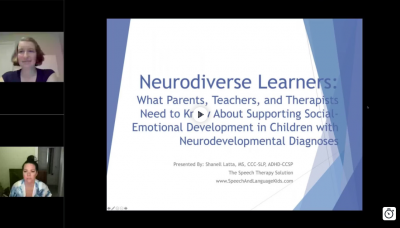
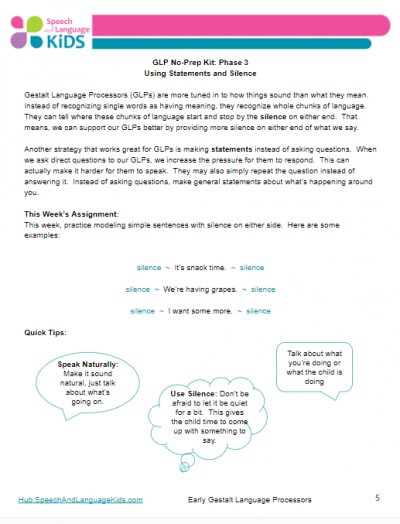
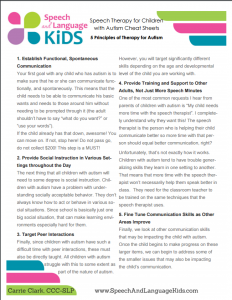
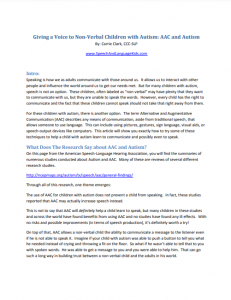
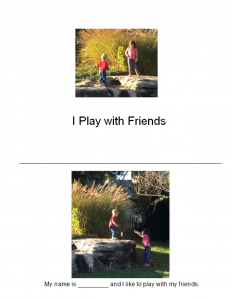







Lacee mentioned a free checklist from Speechy Musings on TPT, but I don’t see a link for it, and I can’t find it on TPT. Was it taken down? Thanks!
Hi, Jamie-
It looks like there are no longer any free checklists being offered for Speechy Musings on TPT, however, I did find this link for Autism products that may be of help to you: https://www.teacherspayteachers.com/Browse/Search:Speechy%20Musings%20autism.
I believe she was referring to this checklist here 🙂
https://www.teacherspayteachers.com/Product/Language-Sample-Analysis-Checklist-Freebie-2494778
https://www.teacherspayteachers.com/Product/Language-Sample-Analysis-Checklist-Freebie-2494778
good morning,
do you happen to have information is Spanish and other languages?
Hi, Ceci-Unfortunately we do not at this time. So sorry about that!
How to write a perfect speech assessment report of autistic child